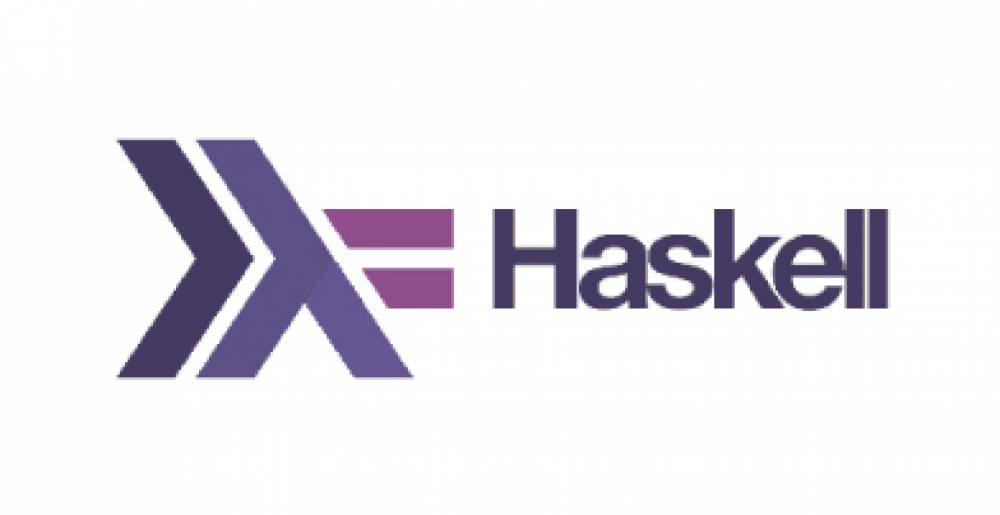Haskell in its bare essence is a programming language that is purely functional. One of the more secure forms of code, due to being static and finds its place in various domains due to the numerous advantages it provides. However, Haskell has been around for a while but still finds itself relevant.
The history of Haskell
The first version of Haskell was released in 1990, three years after the functional programming community decided to lay down a non-strict language. It has been named after Haskell Curry, the logician. Since then, the language has only gained popularity and still finds importance to this day. Although, it must be noted that it’s not really a popular programming language among new users who are more inclined towards Python or Java. Haskell is limited to research and academia which narrows down its user base.
Haskell is a functional programming language
In order to understand what Haskell is, we have to understand what sort of a programming language it is. Broadly, programming languages are classified as Object-Oriented and Functional. The former is basically creating ‘objects’ that resemble real-world entities and there are functions that it can use.
However, functional programming is actually creating pure functions. These pure functions are statically typed, meaning that the same inputs will produce the same outputs. It takes external factors such as machine state, etc., out of the equation. Haskell being a functional program in nature finds itself useful in many industries.
Advantages of Haskell
There are numerous advantages to using Haskell and that is why it still finds itself being used in a number of sectors currently.
- Better memory management means that there are no memory-related issues such as buffer overflow, memory leaks and so on seen in C and C++ languages.
- Optimal use of resources by Haskell means that it is a better choice for data processing and good performance when compared to the more popular languages like Java and Python.
- Given Haskell is made of pure functions, it equips the programmer to avoid or lessen errors when it comes to writing for correct software.
- Quality assurance is guaranteed due to its static nature as the code is compiled when it is in development and catches any bug at the early stages.
- Open-source ecosystem means that it is compatible between libraries and problems are solved and found on the ecosystem.
Use of Haskell in industries
Haskell’s plethora of advantages makes it a useful component in a number of industries. The major sectors where it finds a place are aerospace, finance, defence, hardware design and so on. With a wide commercial base, the Industrial Haskell Group is the one responsible for support to them.
Some of the biggest companies like AT&T, Barclays, Ericsson, Facebook, Google, Intel, Microsoft, etc., use Haskell for their various needs in networking, IT infrastructure, code manipulation and image processing among many others. Perhaps the biggest place Haskell has in the current day is fintech. Due to its tamper-proof nature, it is used in Blockchain which leads to cryptocurrency and so on.
Plutus and how Haskell is linked to it
Plutus is just another functional programming language much like Haskell. It is used to write smart contracts for Cardano. Smart contracts are essentially programs stored on a blockchain when conditions are met. Plutus is written in Haskell and those smart contracts are simply programs of Haskell.
Parts of the Plutus contracts that are on the client computer are compiled by the GHC (Glasgow Haskell Compiler) which is the primary Haskell compiler. Plutus Core is a similar functional language to Haskell and the latter can be used to write the former’s scripts. Smart Contract programmers need not write Plutus Core, they are generated by the Haskell compiler instead.
It is Plutus that now links to Cardano which is a blockchain platform. That means Haskell is the footing for Plutus which is Cardano’s smart contract programming language. Due to more security and assurance being needed by Cardano, Haskell is the language implemented. The whole overview of Blockchain and Cardano can be easily understood with EMURGO Academy’s Cardano Architecture & Design Developer Associate.
Haskell still has limited popularity despite its advantages
Rather absurdly, given Haskell’s usefulness and advantages, one would think it would be a more popular programming language. However, that is not the case and there are good reasons for that. Despite some of the major companies using Haskell, they don’t have qualified or expert programmers in Haskell. The complex nature of the program is a deterrent for new learners.
Add to that, most companies still rely on other coding languages like Java, C++ or so on. The transition of the use of Haskell alongside makes it a daunting prospect. Hence, Haskell finds itself in the lower regions of popularity despite its apparent advantages over the aforementioned languages.

